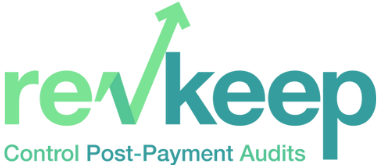Compliance plays a critical role in the Revenue Cycle Management (RCM) department of healthcare organizations. RCM is the process of managing the financial aspects of a healthcare facility, including billing, coding, claims processing, and revenue collection. Compliance in the RCM department ensures that all activities are conducted in accordance with legal and regulatory requirements. Here are some key aspects of the role of compliance in the RCM department:
Key Aspects of Compliance in RCM
Billing and Coding Compliance
Billing and Coding Compliance: Proper billing and coding are essential for accurate claims submission. Compliance ensures that all medical codes (CPT, ICD-10, HCPCS) are used correctly and that services billed are supported by appropriate documentation. Non-compliance can lead to billing errors, claim denials, and potential legal issues.
Regulatory Compliance in RCM
Regulatory Compliance: RCM departments must adhere to various healthcare regulations, such as the Health Insurance Portability and Accountability Act (HIPAA), which protects patient data privacy. Compliance ensures that patient information is handled securely, and any breaches are reported appropriately.
Anti-Fraud and Anti-Abuse Measures
Anti-Fraud and Anti-Abuse Measures: Compliance efforts in RCM include preventing fraud and abuse, which can lead to false claims and financial penalties. Compliance programs often involve training staff to recognize and report potential fraudulent activities.
Documentation and Recordkeeping
Documentation and Recordkeeping: Proper documentation of patient care and billing-related activities is crucial. Compliance ensures that all required documentation is maintained, and records are kept for the required retention period. This helps in audits and investigations.
Government Programs and Compliance
Government Programs: Many healthcare organizations participate in government programs like Medicare and Medicaid. Compliance is essential for following the specific rules and regulations associated with these programs, such as documenting and billing for services correctly.
Education and Training in RCM Compliance
Education and Training: RCM departments should provide ongoing education and training to staff to keep them updated on changing regulations and best practices. This ensures that employees understand their responsibilities in maintaining compliance.
Auditing and Monitoring
Auditing and Monitoring: Compliance programs often include regular auditing and monitoring of billing and coding practices. This helps identify and rectify any potential compliance issues before they become major problems.
Reporting and Investigation
Reporting and Investigation: In the event of suspected non-compliance, RCM departments are responsible for reporting and investigating any irregularities. This can involve cooperating with internal and external auditors or government agencies.
Revenue Protection
Revenue Protection: Compliance efforts help protect the revenue of the healthcare organization by minimizing the risk of claim denials, fines, and legal actions. This ensures that the organization receives appropriate reimbursement for the services provided.
Ethical Standards
Ethical Standards: Compliance in the RCM department also includes maintaining high ethical standards in financial practices. This includes avoiding conflicts of interest, ensuring transparency, and promoting fairness in billing and collection processes.
Conclusion
In summary, compliance in the RCM department is vital for ensuring that healthcare organizations operate ethically, adhere to regulations, and protect their financial interests. It helps minimize legal and financial risks while ensuring accurate billing, coding, and revenue collection processes.
Kevin Lasser is the CEO of RevKeep. RevKeep helps healthcare providers retain more money previously earned in an environment where there are shortages in various departments. Learn more at www.revkeepsoftware.com


